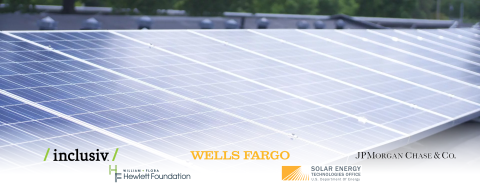Clean energy—whether through energy efficiency or through renewable energy like solar and geothermal—is a powerful tool for economic development, community resiliency, and energy affordability and reliability for communities. But that is not all: clean energy projects provide a strong business opportunity for investors. Clean energy finance is an investment in proven technology, with decreasing costs and improving project economics in most markets.
In many respects, clean energy finance is a mature market, with a wide ecosystem of investors providing a mix of debt, equity, and tax credit equity in the market. However, community-based lenders such as Credit Unions, Community Development Financial Institutions, and Community Banks, have a unique role to play within this market. Not all households are participating equally in the move to clean energy, and there is a real risk that many populations will be left behind, including low-income families, rural communities, and people of color. Community lenders have the combination of deep community relationships and underwriting experience that can help make clean energy more affordable and accessible to communities everywhere.
Resources Available
Training on a variety of clean energy finance topics, including:
- Green Home Consumer Lending
- Multifamily Clean Energy Lending
- Commercial Solar Lending
Visit our Green and Solar Lending page to learn more about our courses
Publications and Convenings
- Clean Energy as Economic Development: An Analysis of the Greenhouse Gas Reduction Fund | Megan Mehajan, Eric Hangen
- Clean Energy Project Development for Low-Income Communities Strengthening the Ecosystem for Delivering: Solar Energy and Deep Efficiency Retrofits | Eric Hangen
- Scaling Equitable Solar Finance | Eric Hangen, Rebecca Regan, and Sarah Boege
- Funding a Just Transition—How CDFIs Can Lead the Way on Climate Action, Opportunity Finance Network Guest Blog | Keith Bisson
- Summary of the 2022 Financial Innovations Roundtable, "Advancing Clean Energy"
- Summary of the 2023 Financial Innovations Roundtable, "Climate, Equity, & Social Drivers of Health"
- Summary of the 2024 Financial Innovations Roundtable, "Equitable Climate Finance"

